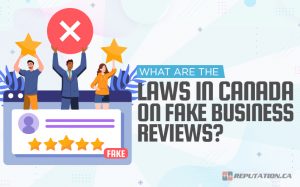Trust is a fragile thing that is difficult to build up and easy to destroy, especially since people seem psychologically inclined to believe the worst. The fragility of trust between 2 people can be reasonably durable depending on how long they have known each other. Unfortunately, that same durability is absent in the average citizen’s trust in the companies they purchase products and services from.
When we are deceived or betrayed by a company, we are significantly less forgiving and often withdraw our interest in their future products. This can be minor if it only happens once or twice, but repeated issues with your services or products could drive away most of your consumers.
The fragile nature of consumer-to-corporation trust makes it essential to initiate damage control measures whenever your reputation is threatened. Unfortunately, damage control is not as simple as issuing a blanket apology and expecting things to return to normal. Instead, considerable effort must be made to restore your company’s reputation and regain consumers’ trust.
The method used to address customer concerns and issues has evolved over the past several decades due primarily to the rise of online communication. This has made it easier for consumers to spread their discontent nationwide, making it difficult to overcome the backlash from the abused trust. This has also necessitated a reinvention of how companies correct the issue and make amends. As a result, these companies are forced to ask: what are the best tactics for 2023?
Why is Trust Important?
You might be curious why having your customers’ trust is important when running a profitable business. The fact is a company is nothing without the trust of its consumers. The largest companies in the world have only succeeded because they could retain repeat business from their customers. Repeat customers are crucial to companies across every field and help keep them running even in difficult years.
For example, Apple Inc. owes its success to customers who continue using iPhones and Mac Books rather than Androids and Windows computers. Otherwise, the company would have collapsed while one of its rivals became one of the most beloved technology companies worldwide. Repeat business is only possible when you secure the loyalty of your consumers through reliable services.

If your customers do not trust you, they will not hesitate to seek another company that can be trusted to provide the service or product you offer. If the quality of your service dips, it can damage your reputation and require you to reassess your services. One of the lesser-known concerns is that you must also consider the ramifications of your customer service. Rather than the quality of your product, the way you address your customers and their concerns can drastically reduce their trust in you if it is aggressive or non-committal.
Without this effort, the loss of trust will turn your consumers against you and leave your business struggling. Maintaining the trust between you and your customers can make all the difference in preserving your reputation and ensuring the survival of your business.
The act of restoring fractured trust is not an easy one and will require significant effort to accomplish. In the last 50 years, how companies have interacted with their customers has radically changed. Now, in the year 2023, companies must consider all aspects of how to maintain their consumers’ trust and how to communicate with them. Fortunately, several tactics can be implemented into existing public relations techniques.
#1: Honesty is the Best Policy
One of the biggest mistakes companies make in the wake of a mistake that damages their reputation is trying to downplay it. They might do so by implying the error was not as severe as it was alleged by the victims or by attempting to discredit the claims as false. Regardless of how they go about it, a company that tries to minimize the severity of its mistake will only alienate its consumers further.
The best thing to do in these situations is to be honest with your consumers about your mistake. Accepting the issue as a fact is essential to proving to them that you take the situation seriously. This also helps confirm your promise to do better is genuine rather than a dismissal of the situation. Your consumers need to be able to believe what you say is genuine, or they will reject all the platitudes you offer in official statements.

This honesty is not limited to mass statements and must be used in one-on-one conversations with disgruntled customers (more on that later). Ultimately, “honesty is the best policy” holds true because it provides confidence that what you tell your consumers can be trusted. This honesty must be the basis for all subsequent steps when rebuilding the trust your consumers once held in you. The slightest deception could radically backfire and turn your remaining loyal customers against you when the lies are revealed.
Unfortunately, this also means that simply being honest with your consumers will not be enough to rebuild the rapport you once enjoyed with them. You must take additional steps to rebuild trust and use certain tactics to help you interact with your consumers.
#2: Keep Up With Modern Communications
Attempting to rely on antiquated communication methods that worked 50 years ago will only lead to disaster when communicating with modern consumers. Since 1997, social media has become a constant resource for modern society, though the original platform is now defunct.
Nowadays, virtually everyone has an account on platforms like Twitter and Instagram that enable them to maintain communications with people worldwide. While social media was primarily designed to help people communicate socially, these platforms (primarily Twitter) have become valuable company resources. Social media has made it extremely easy to make announcements to many customers.

While certain demographics are not present on social media, the future of business seems to be online. This is not limited to online storefronts or promotional codes posted on your company’s Twitter account.
When consumers are discontent, they will more than likely flock to Twitter (if you will pardon the pun) to voice their concerns. Their comments will likely include questions about how you plan to resolve the situation and outraged statements over the misconduct. The conversations on Twitter are not necessarily an official panel, but it offers an opportunity to interact with your consumers directly. This can be invaluable for regaining their trust since you can address and assuage their concerns firsthand.
#3: Address Independent Reviews
The use of review websites like Yelp and Google Reviews has become a common practice in modern society. This has allowed customers to leave their thoughts and concerns about a business’s actions and products for other potential customers to browse. Reviews offer a valuable resource that has protected the interests of consumers worldwide, though they have been detrimental to certain companies.
When the reviews surrounding a specific company are overwhelmingly negative, it shatters the trust of prospective customers considering their services. It also damages existing customers’ trust in the business since they were shown how unreliable the service or product is. Unfortunately, many companies consider reviews an immutable commentary they do not have to address. This is far from the case since it is possible to turn reviews into viable exchanges with the customer.

Companies can respond to reviews on most mediums, especially Google Reviews, which has become the first stop for most prospective customers. When an issue warrants an unfavorable review, the company’s public relations expert can issue an official response on the company’s behalf. This allows the company to address the customer’s concerns and attempt to resolve the issue if customer service cannot resolve it or was never contacted.
Addressing a review requires accepting the customer’s concerns with your business and services. This means you cannot be defensive in your response and must address the situation with logic and understanding. Getting to the root of the problem can make it easier to determine whether the issue is genuine. If the concern was an outlier, you can illustrate that in your response and reach a resolution that works for both parties.
#4: Promote the Successes
Damaged trust will never be easy to repair, especially in a business/consumer relationship. However, it is possible to demonstrate changes that can reassure the customers that you have addressed the concerns that led to their discontent. Customers need to see genuine improvements in how you conduct business to ensure any second chance they give is worth the effort.
The best way to do this is to draw attention to your company’s recent successes. This means illustrating the positive reviews and commentary that are most recent to show that the last reviews left by unhappy consumers are outdated. That said, there is a very fine line between demonstrating your company’s improvements and saturating the media with false information.

A few dishonest groups attempt to make their business look better than it is by paying for positive reviews. While this might have a short-term benefit to the public perception of your company, it will ultimately backfire when real customers discover your services are still subpar. If it is discovered you are paying for positive reviews or commentary, the public trust in your company will be irreparably damaged. It displays the ultimate level of dishonesty and self-concern when you pay for false reviews rather than attempting to address your customers’ concerns.
That said, it is possible to post favorable recent reviews on your store page to draw attention to them. You can also offer promotions encouraging customers to leave honest reviews about your product or service. The more reviews you receive, the easier it will be to post the positive ones and improve your image.
#5: Become An Informative Company
Many companies have begun hosting blogs on their websites to provide insight into their industry and how their services and products apply to it. This trend results from people needing more information about the situation that drew them to the company. This practice has become so common that only very few companies lack a blog of their own in 2023.
Your company can easily employ this same technique if you want to inform your customers about how your products affect their lives. You can use these blogs to ensure your customers are well-educated about the industry and whether they genuinely need your services. This can also affect your customers’ trust in you if you provide valid, honest information.

Blog posts can be taken a step further if you are invited to post an article on another group’s webpage. This shows that your peers take your input on the industry seriously enough to value your input. By extension, your customers will trust your input more since other professionals want your knowledge associated with their domain.
Take Your Reputation Back!
Broken trust with your customers can spell doom for your company since, without their trust, you do not have their patronage. People expect companies to provide quality service and products that can be trusted. The problem is that many companies have begun cutting corners to maximize profit with minimal effort. As a result, people have become warier of the companies they consider using but will take a chance if the reviews are favorable.
If the reviews are unfavorable, it is usually the result of commentary from customers whose trust in the company was damaged. While it is possible to rebuild your reputation, it can be extremely difficult, and you might need assistance if you lack a reputation management team.

We at Reputation have made preserving the public images of our clients our priority, especially in the face of modern communications. We offer several services, such as social media and Wikipedia management, that can help restore your customers’ trust. We can provide the behind-the-scenes assistance necessary to reinvigorate your public image. This can save you from having to finance the creation of a reputation management team so you can focus on delivering quality products and services. There are no shortcuts to enhancing our public image, so we encourage you to visit our website and take your reputation back!












